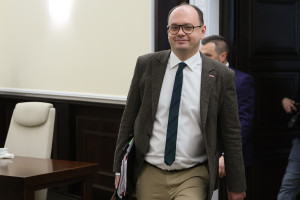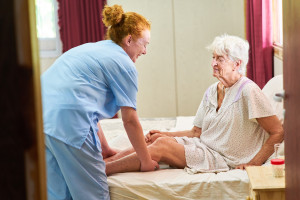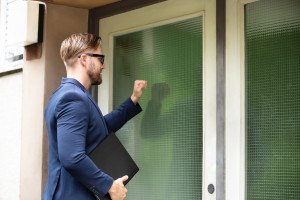Before September 1st, the bishops issued a letter of recommendation. "It is one big lie."

- From September 1st, a new health education subject replaces family life education and covers a wide range of topics
- Bishops criticize the subject, claiming it promotes changes in the perception of family and love
- Katarzyna Lubnauer calls the episcopate's letter a lie and encourages people to read the official program
From September 1, health education will replace family life education.
As announced, health education is to be a holistic subject, combining elements of the following sciences:
- about health,
- medical,
- social,
- humanities,
- natural sciences,
- exact.
It is intended to address health in the following dimensions:
- physical,
- mental,
- sexual,
- social,
- environmental
at all stages of life.
In connection with the introduction of the new subject in schools, the Presidium of the Polish Episcopal Conference issued a letter on the matter in May. The Episcopal Conference recalled its content last week on the X portal.
In the letter, the bishops stressed that, contrary to what some media outlets indicate, the new subject "is not about students' health."
- In its significant part, this subject contains content related to so-called sexual health, the aim of which is to completely change the perception of family and love - assessed the members of the Presidium of the Polish Episcopal Conference.
They wrote that " according to the assumptions of the new subject, students are to be subjected to eroticization from an early age ." They also appealed to parents not to consent to their children participating "in these demoralizing activities."
Right-wing circles are also critical of the new item.
Sharp criticism of the bishops' position comes from the governmentDeputy Minister of Education Katarzyna Lubnauer, speaking on Polskie Radio 24, said the dispute on this topic is "purely ideological and political." She noted that health education addresses, among other things, where children and young people should seek help when faced with online threats .
- Health education is about not looking at diets on the internet, because they are often false, but about actually learning how to eat healthily - pointed out the deputy head of the Ministry of National Education.
She added that the subject includes elements related to sexual health, but "there's no more of that than in family life education." " That's one-tenth of the core curriculum ," Lubnauer noted.
She pointed out that a young person needs to know how not to be sexualized, how to say "no," and how to behave in a situation involving "bad touch."
" This entire letter from the Episcopate is one big lie. I strongly encourage everyone to visit the ministry's website, (...) where you can read exactly what's in the core curriculum , for example, the care with which it discusses everything related to family life, relationships with parents, siblings, grandparents, and the value of family," Lubnauer emphasized.
Health education will be taught:
- in primary schools in grades IV-VIII (one hour per week in each of these grades, with classes in grade VIII to be conducted no longer than until the end of January)
- in upper secondary schools: in general secondary schools, technical schools and vocational schools of the first degree (one hour per week in grades I and II or in grades II and III, or in grades I and III - a total of two hours during the teaching period).
In non-public schools, the number of teaching hours cannot be lower than in a public school.
Classes will be organized in classes or inter-class groups of no more than 24 students. For classes on mental health, sexual health, or puberty, the class or inter-class group may be divided into smaller groups.
In the 2025/2026 school year – contrary to the Ministry of Education's initial announcement – classes will be optional, provided that the student is withdrawn from classes by September 25th.
Copyrighted material - reprint rules are specified in the regulations .
rynekzdrowia












